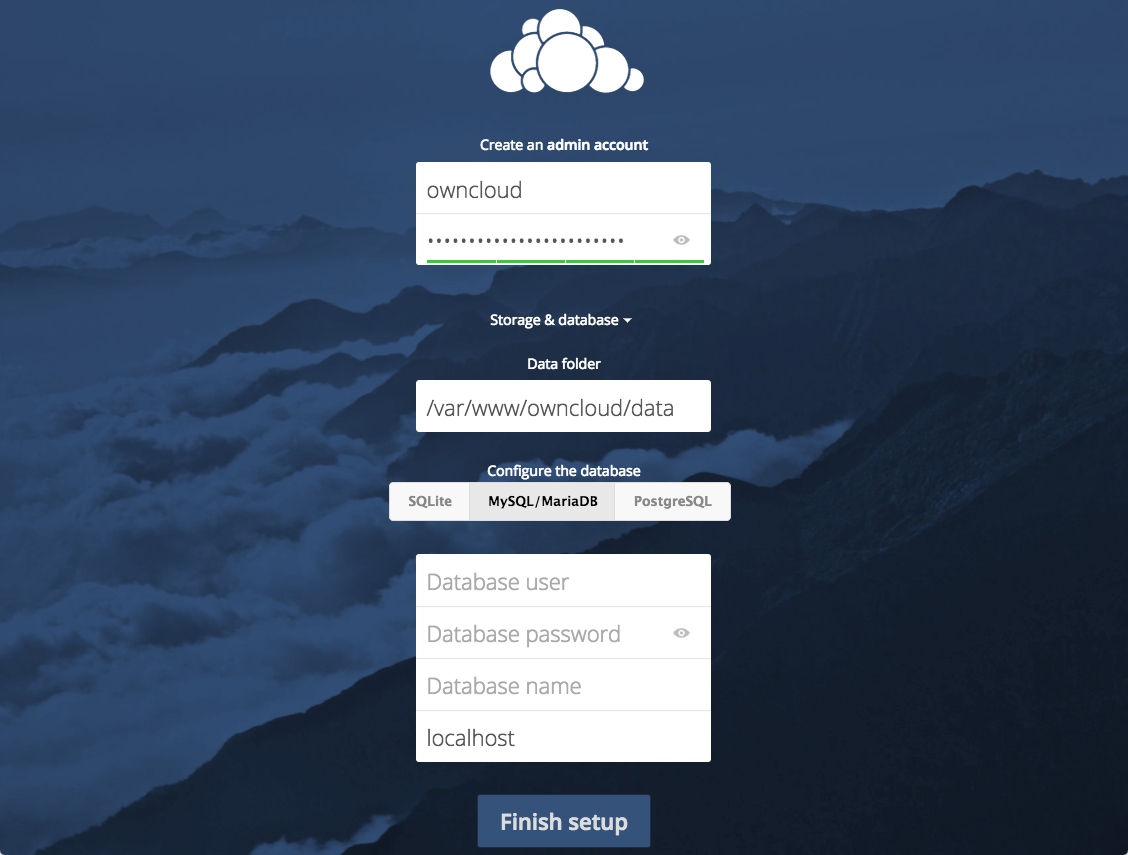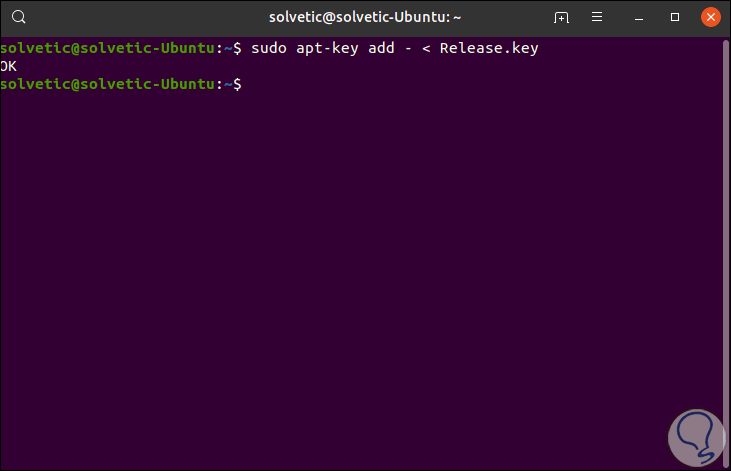

Install owncloud ubuntu free#
The main difference is that ownCloud is a free and open source application can be configured in our own environment where we can control the data and secure them with limited access.

The default page: sudo gedit /var/ownCloud is a file sharing server which permits the users to store the personal contents at a centralized storage or location just like Google Drive, Dropbox etc. If you do not use the web server, neuther redict HTTP to HTTPS, I recommand to remove the default HTML page. You should be able to log in to your freshly installed ownCloud instance:
Install owncloud ubuntu password#
Databse password: the password previously set at this step.

If you select another folder, add the www-data user to the folder: sudo chown -R www-data: /path/to/my/folder/Ĭonnect ownCLoud to the MySQL database previously configured: The default value is /var/www/owncloud/data, but you can change according to your The user's files and folders stored in ownCloud will be stored here: Let's detail each parameter:Ĭhoose a user name and password for the main administrator account. The fist time you access the ownCloud web interface, you should get the first timeĬonfiguration page. OwnCloud web interface at one of the following address: If everything is properly configured, you can access the Once Apache, PHP, MySQl and ownCloud are installed, the last step is to set up ownCloud. If you want an automatic redirection of http to https, edit the following file: sudo gedit /etc/apache2/sites-available/nfĪdd the following line in the file: Redirect / localhost/ Configure ownCLoud Select advanced and proceed (you can trust this certificate since this is yours). In your brower, enter the url you should reach SSLCertificateKeyFile /etc/ssl/private/owncloud.keyĮnable your new configuration file: sudo a2ensite nfĮnable the rewrite, mime, and unique_id Apache modules: sudo a2enmod rewrite mime unique_id SSLCertificateFile /etc/ssl/certs/owncloud.crt replace localhost by your domain or IP address.default port for http is 80 (change it if needed).Or use nano if you are in command line: sudo nano /etc/apache2/sites-available/nfįill the text file with the following and adapt it to your needs: /etc/ssl/certs/owncloud.crt is the certificate.Ĭreate and edit an Apache configuration file: sudo gedit /etc/apache2/sites-available/nf./etc/ssl/private/owncloud.key is the private key.The last command should generate two files : In order to get secured HTTPS access, let's create a SSL certificate: sudo openssl req -x509 -nodes -days 365 -newkey rsa:2048 -keyout /etc/ssl/private/owncloud.key -out /etc/ssl/certs/owncloud.crtĪnswer the questions. Restart Apache to enable changes: sudo systemctl restart apache2 Into the Apache default directory: sudo mv owncloud /var/www/Ĭhange the ownership of the directory for the user www-data: sudo chown -R www-data: /var/www/owncloud Create SSL certificateĪctivate mod_ssl with the following command: sudo a2enmod ssl Unzip the downloaded file: unzip owncloud-latest.zipĪ new directory owncloud is created after unziping the file.
Install owncloud ubuntu download#
Grant the new user with the necessary privileges: GRANT ALL ON ownclouddb.* TO WITH GRANT OPTION Įnable changes by flushing the privileges: FLUSH PRIVILEGES įinally, exit the MySQL console: exit Download ownCloud Replace password by the appropriate value: CREATE USER IDENTIFIED BY 'password' We now need to create the ownCLoud database from the MySQL console: sudo mysql -user=root -pĬreate the MySQL ownCloud database: CREATE DATABASE ownclouddb Ĭreate a new user.

Start and enable the MySQL service: sudo systemctl start mysql


 0 kommentar(er)
0 kommentar(er)
